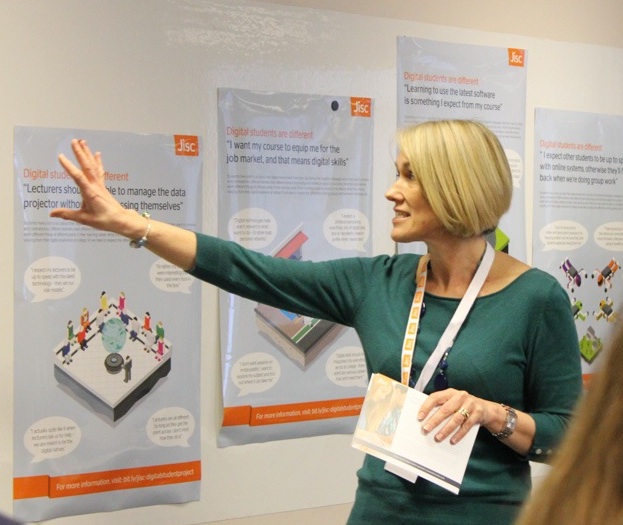The FE study is undertaking a series of consultation events to share the findings from the desk study and focus groups, and create a set of recommendations.
Recommendations for managers and leaders
We started with recommendations for colleges and are now focussing on recommendations for college managers. There are three strands of activity for college managers that staff and students at the consultation events have prioritised:
- Initiate (or reinvigorate?) a college digital strategy group, ensuring that the decisions that it makes are informed by staff and learners’ perspectives and underpinned by local and national evidence.
- Plan carefully how to engage learners in a dialogue about technology. Learners want to be engaged but currently feel they are not listened to. Consider using a variety of methods which together: acknowledge how important technology is for learners, encourage learner voices to be heard, include the variety of learner voices, manage learner expectations, and feedback to learners how their voices have been heard and used.
- There is an urgent need for staff development based on the findings from the desk study of differentiation. How can lecturers prepare classes (and blended/flipped lessons) for learners when there are such a variety of learner experiences and attitudes towards technology?

Recommendations for Jisc (and other sector bodies)
The initial commission asked for recommendations for Jisc but there are other influential sector bodies that staff at the consultation events wanted to recognise. Sector organisations are seen to have a role in lobbying and supporting college leaders to develop strategies and practices to manage and meet learner expectations. They might do this by:
- Creating and sharing institutional exemplars of college strategies that clearly differentiate between learners, their needs and the resources they bring to the learning environment.
- Collaborating with other sector organisations in order to share resources and disseminate research findings.
- Facilitating closer working between business, employers and FE staff when determining expenditure, use of technology and assessment in order to ensure learner have access to and are using technologies in ways which prepare them for employment and enhance their lifelong employability
Recommendations for researchers and funders of research
The desk review highlighted the lack of funding for research in FE and Skills and the impact this has had on learner experience research. There are various ways the sector could deal with this. It’s not yet clear which approach is favoured or whether all are needed.
- Colleges could conduct their own institutional research in order to keep pace with the impact of changing expectations. However, access to these is difficult and there needs to be more better support in the form of tools and analysis services and synthesis and dissemination of their findings nationally.
- Develop lecturers’ professional practice: encourage them to use research findings, conduct their own evaluations and engender professional pride in their practice, such as through supporting routes to postgraduate study, collaborations with HE researchers, and action research projects.
- Make ring-fenced funding available to higher education researchers for studies to investigate learner experiences within the further education and skills sector. There needs to be funding for large scale projects and/or aggregation of small scale projects.
We are looking forward to further developing DRAFT recommendations (updated for London) with staff and learners at the final consultation events in London and Swansea.

One reply on “Emerging recommendations from FE study”
I completely agree that there needs to be further research and funding for such research in the context of FE. I myself are part way through a project within FE (self funded- now on hold) that looks speciifcally at digital literac undertsnding within an FE institution- it was generating some interesting ideas that could really add value to what the teachers/educsators and learning technologists were focussing on and inclduing within their day to day practice.
I really do hope these recommendations are listened to and that some funding is ring-fenced for FE- but also that FE privilages and acknowledgeds the importance of research in terms of how it can benefit them as it seems that it is not seen as something which has an impact of the day to day working of institutions.